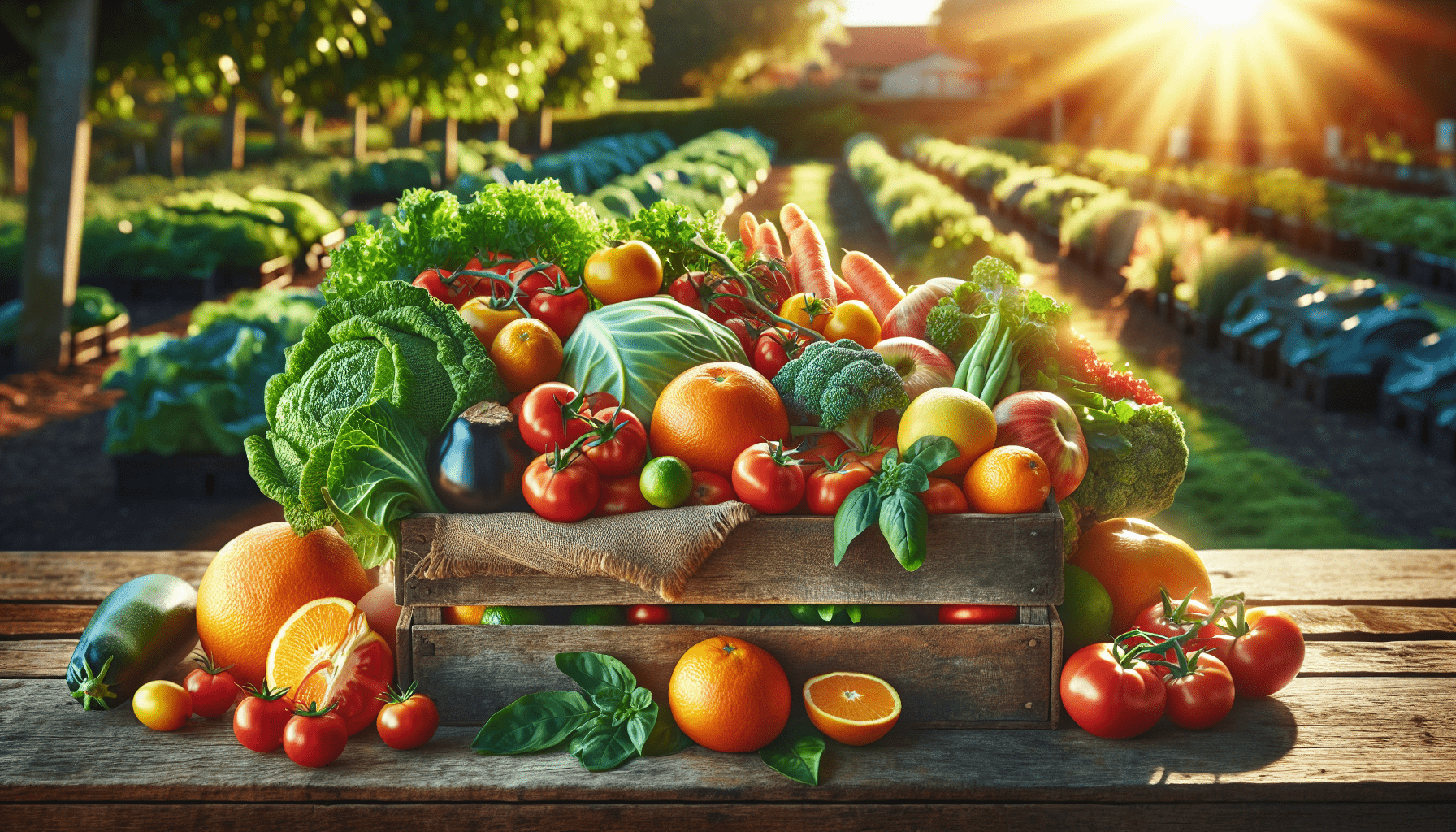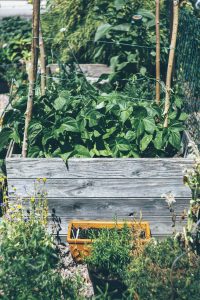Supporting local farmers is more important than ever in today’s rapidly changing world. In “How Can I Support Local Farmers?” we’ll explore simple yet impactful ways we can contribute to our community’s agricultural backbone. From visiting farmers’ markets and choosing seasonal produce to participating in community-supported agriculture (CSA) programs and promoting local food initiatives, we have the opportunity to make a genuine difference in the lives of our local growers while enjoying fresh, nutritious food. Let’s dive into how we can cultivate a stronger, more resilient local food system together. How can we support local farmers? It’s a question that many of us are asking as we become more conscious of where our food comes from and the practices behind its production. Supporting local farmers not only provides us with fresh, nutritious food, but it also has a positive impact on the environment, the local economy, and our communities. In this article, we will delve into various ways to support local farmers and the benefits that accompany these actions.

The Importance of Supporting Local Farmers
When we support local farmers, we create a ripple effect that benefits everyone. Local farmers tend to use more sustainable farming practices, prioritize animal welfare, and create jobs within our communities. Here are some of the key reasons why supporting local farmers matters:
Environmental Benefits
Local farms are generally smaller and adopt more sustainable practices, which means they are less likely to rely on harmful pesticides and monocropping. By purchasing locally grown produce, we reduce our carbon footprint as the food travels shorter distances from the farm to our tables.
Economic Prosperity
Money spent on local farms often stays within the community, helping to support not just the farmers, but also local businesses and services. When we purchase from local farmers, we contribute to the local economy, which can lead to job creation and infrastructural development.
Nutritional Advantages
Freshly harvested crops are more nutritious and flavorful. The shorter the time between the farm and our plates, the fewer nutrients lost during transportation and storage. By buying local, we ensure that we get the highest quality and freshest food available.
Visit Farmers’ Markets
One of the most straightforward ways to support local farmers is by shopping at farmers’ markets. Farmers’ markets offer a variety of locally produced fruits, vegetables, dairy, and meat products.
Building Relationships
By regularly visiting farmers’ markets, we can establish relationships with the farmers themselves. They can provide us with valuable information about their farming practices, the best seasonal produce, and how to prepare certain foods.
Exploring Seasonal Foods
Eating seasonally means consuming produce that is harvested at its peak. Farmers’ markets are excellent places to find seasonal fruits and vegetables, which are often fresher and more flavorful than their out-of-season counterparts found in supermarkets.
| Season | Common Produce Available |
|---|---|
| Spring | Asparagus, strawberries, peas |
| Summer | Tomatoes, zucchini, peaches |
| Fall | Pumpkins, apples, squash |
| Winter | Kale, citrus fruits, root vegetables |
Consider Community-Supported Agriculture (CSA)
Community-Supported Agriculture, or CSA, is an arrangement where we can subscribe to receive regular deliveries or boxes of produce directly from local farms. This model not only provides us with a steady supply of fresh food but also guarantees income for the farmers.
Benefits for Us
Being part of a CSA means we get to enjoy a variety of fresh produce throughout the season. It also encourages us to try new fruits and vegetables that we might not typically pick out at the store, expanding our culinary horizons.
Benefits for Farmers
For farmers, a CSA provides a stable and predictable revenue stream. It allows them to focus more on farming practices rather than worrying about finding a market for their produce.
Buy Directly from Farmers
Another excellent way to support local farmers is to make purchases directly from the farm. This could be through:
Farm Stands
Many farms have stands where they sell their produce directly to consumers. By buying directly from farm stands, we can often get fresher and sometimes cheaper produce than in stores.
U-Pick Farms
U-Pick farms allow us to pick our own fruits and vegetables. It’s a fun and educational activity for families and friends, providing a direct connection to where our food comes from.

Participate in Local Food Initiatives
There are numerous community-based programs and initiatives designed to support local agriculture. Some of these include:
Local Food Hubs
Food hubs are organizations that aggregate, distribute, and market local food products. By purchasing through food hubs, we support multiple local farms at once.
Farm-to-School Programs
These programs work to incorporate local foods into school meals. By advocating and supporting these initiatives, we can help create long-term markets for local farmers.
Support Restaurants and Cafes that Source Locally
Many restaurants and cafes pride themselves on sourcing their ingredients from local farms. By dining at these establishments, we are indirectly supporting local farmers.
Farm-to-Table Dining
Farm-to-table dining focuses on using fresh, local ingredients. These establishments typically feature seasonal menus that highlight the best produce available.
Partnership with Local Producers
Some restaurants have direct partnerships with local farms, ensuring a consistent supply of high-quality ingredients. By frequenting these places, we are supporting the broader local food system.

Advocate for Local Food Policies
Being an advocate for local food policies can create lasting changes within our communities. Here are ways to get involved:
Support Agricultural Programs
Advocate for government and non-profit programs that support local agriculture. Examples include grants for small farms or research into sustainable farming practices.
Urban Farming Initiatives
Urban farms and gardens can provide local produce within city limits. Support city policies that promote urban agriculture, which can transform unused spaces into productive green areas.
Grow Your Own Food
While not everyone has the space or resources to grow their own food, those of us who do can make a significant impact. Here’s how:
Home Gardens
By planting a home garden, we can supply ourselves with fresh vegetables and herbs, reducing our reliance on store-bought produce. This practice also helps us understand the challenges and rewards of farming.
Community Gardens
If we lack the space for a home garden, community gardens offer shared space for individual plots. These gardens foster community spirit and provide access to fresh produce for those who might not otherwise have it.

Educate Ourselves and Others
Education is a powerful tool in supporting local farmers. By understanding the importance of local agriculture, we can make more informed choices and inspire others to do the same.
Attend Workshops and Seminars
Many communities offer workshops and seminars on sustainable farming practices, cooking with local produce, and the benefits of supporting local agriculture. Participating in these events can deepen our understanding and commitment to local foods.
Share Information
Whether it’s through social media, blogs, or community groups, sharing information about local agriculture can have a significant impact. Highlight local farms, discuss seasonal produce, and share recipes using local ingredients.
Reduce Food Waste
Reducing food waste is another crucial way to support local farmers. When we waste food, we waste the resources that went into producing it.
Proper Storage
Learning how to store fruits and vegetables properly can extend their shelf life. For example, some produce like potatoes and onions should be stored in a cool, dark place, while leafy greens benefit from being kept in a refrigerator.
Using Leftovers
Get creative with leftovers to minimize waste. Turn yesterday’s vegetable medley into today’s soup or use overripe fruits for smoothies and baking.
Join or Start a Co-op
Food cooperatives or co-ops are member-owned businesses that focus on providing high-quality, local food. By joining or starting a co-op, we can create a consistent demand for local produce.
Benefits of Co-ops
Co-ops often offer a broader selection of local and organic products compared to traditional grocery stores. Members usually have a say in how the co-op is run, which can mean more transparency and community involvement.
How to Get Involved
If there’s a local co-op, consider joining as a member. If one doesn’t exist, gather like-minded individuals and start one. It requires effort but can significantly bolster local agriculture.
Volunteer on Local Farms
Many farms appreciate volunteers, especially during busy seasons. Volunteering allows us to experience farming firsthand and understand the hard work that goes into producing food.
Farm Work Exchanges
Some farms offer work exchange programs where volunteers can work a few hours in exchange for fresh produce or other farm products. This arrangement benefits both the farm and the volunteer.
Educational Opportunities
Volunteering can provide a wealth of knowledge about sustainable farming practices, animal husbandry, and the intricacies of food production. It’s an educational experience that can deepen our appreciation for local food systems.
Support Local Farm Events and Festivals
Local farms often host events and festivals to showcase their work and products. Attending these events can provide financial support to the farms and offer us a fun, educational experience.
Seasonal Festivals
Many farms host seasonal festivals, such as harvest festivals in the fall or strawberry picking events in the spring. These festivals often feature farm products, educational booths, and fun activities for all ages.
Workshops and Farm Tours
Participate in workshops offered by local farms, such as cheese-making, organic gardening, or beekeeping. Farm tours can also provide insight into farming practices and the daily life of farmers.
Promote Local Agriculture Through Media
Media can be a powerful tool in promoting local agriculture. By utilizing various media platforms, we can spread awareness and encourage others to support local farmers.
Social Media Campaigns
Use social media to highlight local farms, share recipes featuring local produce, and discuss the benefits of supporting local agriculture. Hashtags and community pages can broaden the reach of these campaigns.
Local News and Blogs
Write articles or letters to the editor for local newspapers and blogs about the importance of supporting local farmers. Share stories of local farms and the positive impacts they have on the community.
Utilize Technology to Connect with Farmers
Technology can play a significant role in connecting us with local farmers. Here are some ways to use technology for this purpose:
Online Marketplaces
Websites and apps are dedicated to connecting consumers with local farmers. These platforms allow us to order fresh produce, meat, and other farm products directly from local farms.
Social Media and Websites
Many farms have social media pages or websites where they share updates, sell products, and announce events. Following these pages can keep us informed and engaged.
Organize Community Initiatives
Community initiatives can make supporting local farmers a collective effort. Organizing these initiatives can create stronger, more resilient local food systems.
Local Food Directories
Create and distribute a directory of local farms, farmers’ markets, and CSA programs in your community. This can make it easier for everyone to find and support local food sources.
Bulk Buying Groups
Organize a group of friends or community members to buy local produce in bulk. This can often result in discounts and makes it easier for the farmers to distribute larger quantities.
Conclusion
Supporting local farmers is a dynamic and rewarding endeavor that benefits our health, environment, and community. By shopping at farmers’ markets, joining CSAs, advocating for local food policies, and various other actions outlined above, we can make a significant difference. It’s a collective effort, and together, we can cultivate a thriving local food system that sustains us all. So, let’s take these steps and ensure that our local farmers prosper, for their success is intrinsically linked to our own well-being.



